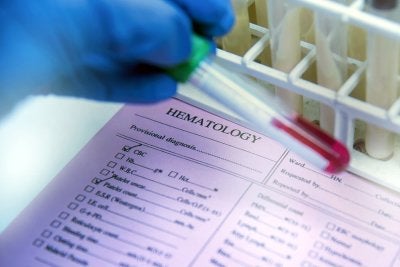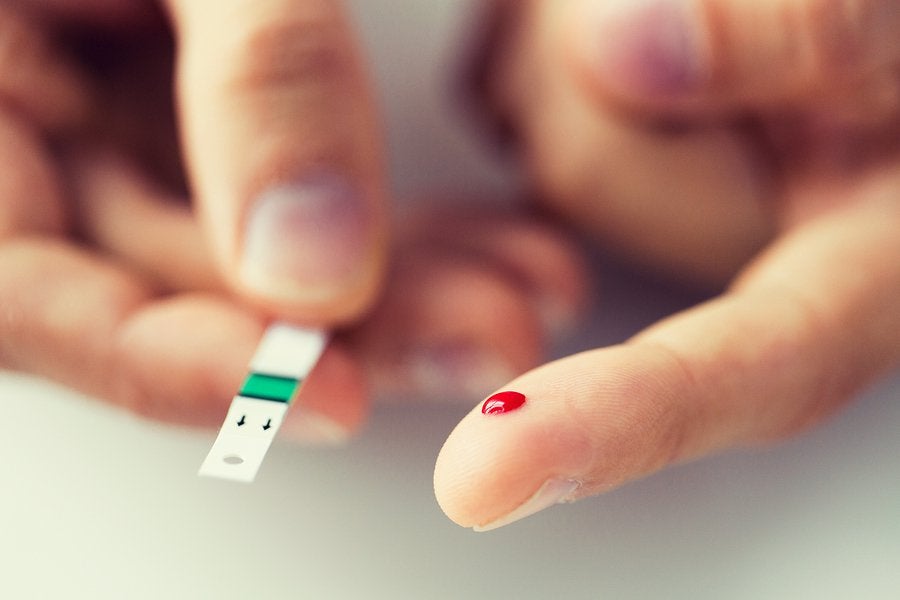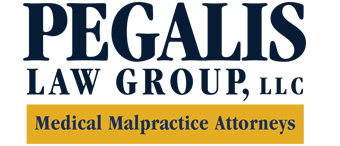-
Learn the Warning Signs During Preeclampsia Awareness Month
Preeclampsia is a serious condition that can happen to women during pregnancy. This condition is characterized by unprecedentedly high blood pressure levels and may also involve liver and kidney damage. If it goes untreated and becomes severe, preeclampsia can have serious health consequences for both mother and child. According to the U.S. Department of Health and Human Services, more than 3 percent of all pregnancies in the United States may be impacted by preeclampsia.
 The possible symptoms of preeclampsia include chronic headaches, vision changes, reduced urination, hyperreflexia, shortness of breath, sudden weight gain, and swelling in the face, hands, or ankles. In many cases, however, the symptoms are not recognized and attributed to pregnancy in general. May is Preeclampsia Awareness Month, so it’s the perfect time to educate yourself about the condition and the importance of proper screenings during pregnancy.
The possible symptoms of preeclampsia include chronic headaches, vision changes, reduced urination, hyperreflexia, shortness of breath, sudden weight gain, and swelling in the face, hands, or ankles. In many cases, however, the symptoms are not recognized and attributed to pregnancy in general. May is Preeclampsia Awareness Month, so it’s the perfect time to educate yourself about the condition and the importance of proper screenings during pregnancy. If you are concerned about a misdiagnosis or possible medical error, contact the law firm of Pegalis & Erickson, LLC in New York. For 45 years, we have advocated for people of all ages, in order to help our clients financially and make healthcare safer for everyone. You can reach us today by calling (516) 684-2900.
-
Health Tests to Ask Your Doctor About
Getting the right screenings from your doctor when you need them is essential to staying healthy and protecting yourself from potential health problems. All too often, however, doctors don’t recommend the tests that their patients require. Here are some of the most important health tests you should be sure to ask about during your next visit to your doctor’s office.
Depression
If you’re showing any of the symptoms of depression, you should ask your doctor about getting a screening. Some of the most common signs of depression include a nagging feeling of hopelessness, lack of energy, poor appetite, and feeling little interest or excitement over activities that once brought you pleasure.Blood pressure
High blood pressure, or hypertension, can raise your chances of stroke, heart failure, and other serious health problems. If you are over the age of 20, you should have a blood pressure test performed at least once every two years. If repeated tests show that you have hypertension, your doctor can recommend a course of action to lower your blood pressure. Cholesterol
Cholesterol
Having high cholesterol levels can put you at greater risk of heart disease. Unfortunately, high cholesterol generally doesn’t present any symptoms, which makes routine testing more important. If you’re older than 35, you should have your cholesterol levels checked at least once every five years.Vitamin D deficiency
As many as three-fourths of all Americans may lack the vitamin D they need to keep their muscles and bones healthy. Individuals most at risk for vitamin D deficiency include people with osteoporosis, people who have celiac disease, and people who are obese. If you think you may be at higher risk of vitamin D deficiency, ask your doctor to test you.If you are concerned about a misdiagnosis or possible medical error contact the law firm of Pegalis & Erickson LLC in New York. For 45 years we have advocated for people of all ages, in order to help our clients financially and make healthcare safer for everyone. You can reach us today by calling (516) 684-2900.
-
Misdiagnosing Cerebral Palsy as Autism
Cerebral palsy and autism are different conditions that sometimes have similar symptoms. They both manifest early in life, they are both related to brain malfunction, and they both present some of the same symptoms. Because of this, cerebral palsy is frequently misdiagnosed as autism in young children. If your child has been diagnosed with autism but shows symptoms of cerebral palsy such as involuntary motions or low muscle tone, you should get a second opinion from a different physician. It’s also important to have an attorney you can look to for guidance if it turns out that your child was misdiagnosed at an early age.
 Pegalis & Erickson, LLC, represents parents of children who were misdiagnosed or otherwise let down by their medical providers. If you are concerned about a misdiagnosis or possible medical error contact the law firm of Pegalis & Erickson LLC in New York. For 45 years we have advocated for people of all ages, in order to help our clients financially and make healthcare safer for everyone. You can reach us today by calling (516) 684-2900.
Pegalis & Erickson, LLC, represents parents of children who were misdiagnosed or otherwise let down by their medical providers. If you are concerned about a misdiagnosis or possible medical error contact the law firm of Pegalis & Erickson LLC in New York. For 45 years we have advocated for people of all ages, in order to help our clients financially and make healthcare safer for everyone. You can reach us today by calling (516) 684-2900. -
National Minority Health Month
Unfortunately, not all Americans can count on receiving the same quality of medical care. April is National Minority Health Month, a time to familiarize oneself with the discrimination that minorities may experience in healthcare.
Findings from the National Healthcare Quality and Disparities Reports highlighted the discrepancy between the levels of care received by underserved groups such as minorities, those in rural areas, and the poor, in comparison to other people: African-American received worse medical care than Caucasians for about 40% of measures. Hispanics received worse care than non-Hispanic Caucasians for approximately 60% of measures, and Asians receive worse care for about 20% of measures. Those in poverty received worse care that high-income individuals for approximately 80% of measures.
 Further, according to recent research about minorities and medical care, many feel brushed off or condescended to by their healthcare providers. The results can be delayed diagnoses, worse prognoses, and evens death. If you belong to an underserved population group, it is all the more critical that you keep careful records of the treatment you receive from healthcare professionals. Take the initiative to ask for tests that are recommended for your age and condition.
Further, according to recent research about minorities and medical care, many feel brushed off or condescended to by their healthcare providers. The results can be delayed diagnoses, worse prognoses, and evens death. If you belong to an underserved population group, it is all the more critical that you keep careful records of the treatment you receive from healthcare professionals. Take the initiative to ask for tests that are recommended for your age and condition. If you are concerned about a diagnosis made later than it should have been, a misdiagnosis, or serious errors in medical treatment, contact the New York law firm Pegalis & Erickson, LLC. We advocate for people of all ages and backgrounds and help our clients successfully resolve their cases for financial support and to make healthcare safer for all. You can reach us today by calling (516) 684-2900.
-
Hospital Errors to Watch For
When you go to the hospital, it’s only natural to expect that you’ll be treated in a careful, competent, and professional way. Unfortunately, that isn’t always the case. If you’re treated improperly in a hospital setting, it can have serious effects on your health and well-being. You can do your part to protect yourself as a patient by watching for these common hospital errors :
Medication errors
If you are given the wrong medication—or the wrong dosage—in a hospital setting, the results can be deadly. Not only might your condition be worsened by not receiving the medication you need, but the medication you do get could have an adverse reaction. Make sure that you understand your medication instructions, and that you have all of your medication information with you at the hospital. Poor hand hygiene
Poor hand hygiene
The majority of hazardous germs and viruses are spread from person to person through their hands. It’s important for healthcare professionals to clean their hands using hand sanitizer or soap and water between treating each patient. Failure to observe this rule can result in pathogens being spread from one patient to another, resulting in needless sickness.False patient identification
As unbelievable as it may sound, it happens: A patient’s identity is not confirmed by the medical professionals providing treatment, and the patient receives the wrong treatment. Whether it means not getting the right treatment, being misdiagnosed, or even being subjected to needless treatment such as surgery, false patient identification is a serious issue. Always make sure that every staff member that treats you calls you by your name and checks your wristband.If you are concerned about a misdiagnosis or possible medical error, contact the law firm of Pegalis & Erickson LLC in New York. For 45 years we have advocated for people of all ages, in order to help our clients financially and make healthcare safer for everyone. You can reach us today by calling (516) 684-2900.
-
Steps to Take If a Diagnosis Is Inconclusive
When you have a clear-cut diagnosis, your course of action may seem clear. What happens, however, when your diagnosis is inconclusive? Living with an uncertain medical verdict can be extremely stressful, because you may have no way of knowing when you will get a more conclusive diagnosis. A recent study found that as many as 12 million people in the United States get an inconclusive—or faulty—diagnosis annually. Here are some steps to take after you have received an inconclusive diagnosis:
 Be proactive, not passive.
Be proactive, not passive.
Many patients assume that the medical practitioners who see them always know best, and that they are always in safe hands. Unfortunately, this isn’t always the case. By being an active, engaged, and informed patient, you can help to ensure that you get quality care.Seek out a second opinion.
If your first diagnosis was inconclusive, it goes without saying that you should try again. Go to a different doctor for a second consultation. To ensure objectivity, it’s best to avoid telling this doctor what the first diagnosis was, at least until you have received the second opinion.Talk to your primary care physician.
You should always start by seeing your usual doctor, who will have a better sense of your overall health than anyone else will. While your diagnosis may be made by a specialist, it’s still important to keep your primary care physician in the loop.Keep yourself informed.
In today’s world, it’s easier than ever for patients to get educated about their health and get the accurate information they need to make smart choices. Always do your research before going to any medical practitioner so you’ll be better equipped to ask useful questions.If you are concerned about a misdiagnosis or possible medical error, contact the law firm of Pegalis & Erickson, LLC in New York. For 45 years, we have advocated for people of all ages, in order to help our clients financially and make healthcare safer for everyone. You can reach us today by calling (516) 684-2900.
-
Spotlight on Colorectal Cancer
Colorectal cancer is a type of cancer that originates in either the colon or the rectum. It generally starts as a polyp in the large intestine that eventually develops into cancer. Unfortunately, colorectal cancer does not typically present many noticeable symptoms in its early stages. This is why regular screenings are critical if you are over the age of 50, which is when your risk of colorectal cancer is highest. People who have gastrointestinal issues such as Crohn’s disease or who have a family history of the disease are at a higher risk of developing colorectal cancer. Blood in the stool, unexplained weight loss, and chronic fatigue are some of the most common warning signs of this cancer.
 If you are concerned about a misdiagnosis or possible medical error, contact the law firm of Pegalis & Erickson, LLC in New York. For 45 years, we have advocated for people of all ages, in order to help our clients financially and make healthcare safer for everyone. You can reach us today by calling (516) 684-2900.
If you are concerned about a misdiagnosis or possible medical error, contact the law firm of Pegalis & Erickson, LLC in New York. For 45 years, we have advocated for people of all ages, in order to help our clients financially and make healthcare safer for everyone. You can reach us today by calling (516) 684-2900. -
Patient Safety Awareness Month
March is Patient Safety Awareness Month, which means that it’s an excellent time to highlight the importance of taking precautions as a patient against potential medical mistakes. While it is the responsibility of all medical practitioners to uphold the highest standards of safety in order to protect their patients, patients can also do their part to minimize the risk of harm. Going for regular check-ups, keeping track of your symptoms, having a list of allergies and current medications on hand whenever you visit a medical facility, asking plenty of questions, and getting a second opinion when necessary are all ways that you can help to keep yourself safe as a patient.
 If you are concerned about a misdiagnosis or possible medical error, contact the law firm of Pegalis & Erickson, LLC in New York. For 45 years, we have advocated for people of all ages, in order to help our clients financially and make healthcare safer for everyone. You can reach us today by calling (516) 684-2900.
If you are concerned about a misdiagnosis or possible medical error, contact the law firm of Pegalis & Erickson, LLC in New York. For 45 years, we have advocated for people of all ages, in order to help our clients financially and make healthcare safer for everyone. You can reach us today by calling (516) 684-2900. -
Diabetes Alert Day
Raise your awareness of Type 2 diabetes in time for #Diabetes Alert Day. Diabetes affects more than 10% of the U.S. and one out of four adults with diabetes aren’t aware they have the disease. Another 84 million Americans have prediabetes, but 90% of them don’t know it yet. Many people are unaware of the serious health problems associated with diabetes, so it is important to learn if you are at risk of developing diabetes.
 There are two kinds of diabetes: Type 1 and Type 2. With Type 1 diabetes, the pancreas stop producing insulin, which regulates blood sugar. With Type 2 diabetes, the pancreas produces too little insulin or the body’s cells are not responding properly to insulin. Both types of diabetes can lead to dangerous conditions, such as heart disease, vascular disease and stroke, eye damage, kidney damage, and hard-to-treat infections, Have you told your doctor about any risk factors you have such as family history of diabetes? Your age, extra weight and a sedentary lifestyle should all be considered. Tell your doctor immediately if you have diabetes symptoms such as frequent urination, itchy skin, fatigue, hunger, dry mouth, and blurred vision. Your doctor can help determine the right screening and treatment plan..
There are two kinds of diabetes: Type 1 and Type 2. With Type 1 diabetes, the pancreas stop producing insulin, which regulates blood sugar. With Type 2 diabetes, the pancreas produces too little insulin or the body’s cells are not responding properly to insulin. Both types of diabetes can lead to dangerous conditions, such as heart disease, vascular disease and stroke, eye damage, kidney damage, and hard-to-treat infections, Have you told your doctor about any risk factors you have such as family history of diabetes? Your age, extra weight and a sedentary lifestyle should all be considered. Tell your doctor immediately if you have diabetes symptoms such as frequent urination, itchy skin, fatigue, hunger, dry mouth, and blurred vision. Your doctor can help determine the right screening and treatment plan.. As with many health issues, early detection is key to controlling diabetes, and this starts with a correct diagnosis. If your doctor failed to diagnose your diabetes or pre-diabetes and you suffer serious permanent harm, it is a good idea to obtain a legal consultation. Our legal team has more than 45 years experience in patients’ medical malpractice lawsuits, and can help you determine the truth, with no fee. For more information, or to schedule your free consultation, give us a call today at (516) 684-2900
-
The Challenges in Diagnosing Cancer
Diagnosing cancer in its earliest stages can make an enormous difference in how successful treatment is. By the same token, failing to diagnose cancer on a timely basis can reduce the effectiveness of treatment. Even if medical practitioners are careful and conscientious, however, it can still be difficult to diagnose many forms of cancer. These are some of the types of cancer that present the greatest challenges:
Pancreatic Cancer
While it is considered relatively rare, pancreatic cancer also has one of the lowest survival rates of any type of cancer. The symptoms are subtle and can easily be mistaken for the signs of a different condition. There is also no widely agreed-upon method for effectively detecting this cancer at its earliest stages.Liver Cancer
Like pancreatic cancer, liver cancer does not usually show any obvious symptoms in its early stages. Since the liver is located deep inside the body, the tumors are impossible to detect through self-examination. By the time it can be more easily diagnosed, the disease has usually spread to the point where it is much more challenging to treat. Brain Cancer
Brain Cancer
Brain cancer is one of the most difficult forms of cancer to identify. There is no way to screen for a brain tumor, and the symptoms—which include headaches and muscle weakness—are readily confused with those of other illnesses. Unfortunately, brain cancer is not usually diagnosed until its later stages.Ovarian Cancer
Cancer of the ovaries is the deadliest type of reproductive cancer. As with other hard-to-detect cancers, ovarian cancer does not present any obvious symptoms at first. It is also difficult to detect during pelvic exams, and it is not usually found during Pap tests. There is no reliable screening for ovarian cancer, so it’s important to see a physician if you notice any of the warning signs—which include bloating, feeling unusually full after eating, and more frequent urination. Women who are positive for the BRCA gene are at a greater risk for developing Breast Cancer but also Ovarian Cancer. You should discuss your particular situation with your physician to establish a plan for surveillance and care options.If you believe that you or a loved one has suffered serious consequences because a medical professional failed to identify the symptoms of cancer, it’s time to talk to Pegalis & Erickson, LLC. Our legal team has nearly 50 years of experience bringing successful medical malpractice suits on behalf of our clients. For a free consultation at our law office in Long Island, New York, call (516) 684-2900.
Recent Posts
Popular Posts
categories
- Uncategorized
- Infographic
- Patient Safety
- Patient Health
- Stillbirth
- Birth Injuries
- Medical Malpractice
- Medical Negligence
- Event
- Erb's Palsy
- Injury
- ER
- Video
- Cancer Misdiagnosis
- Medication Errors
- Cerebral Palsy
- Medical Negligence Lawyer
- Anesthesia Injuries
- Brachial Plexus
- Prostate Cancer
- About Us
- Men's Health
- Skin Cancer
- Breast Cancer
- Misdiagnosis



